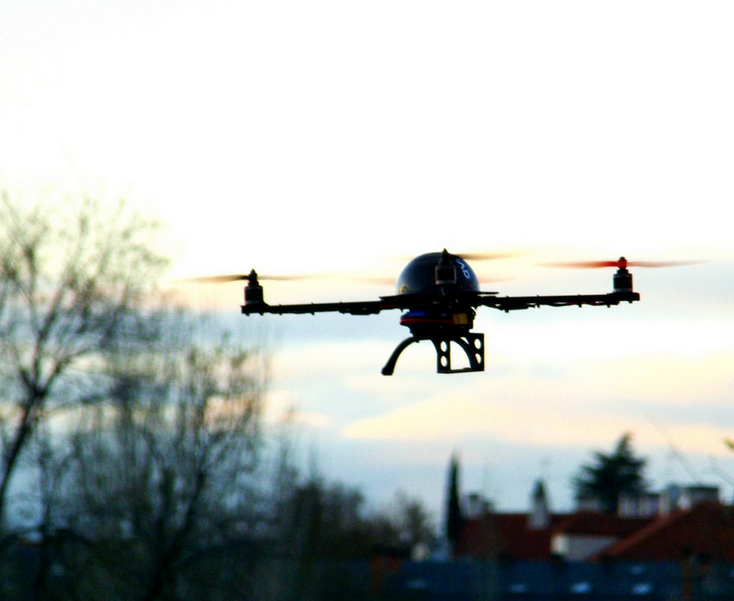 On Feb. 15, 2015, the Federal Aviation Administration (FAA) released proposed regulations for the use of drones. The proposal requires UAS (Unmanned Aircraft System(s)) pilots to be at least 17 years old, to take an initial aeronautical knowledge test followed by a new test every 24 months, and to pass a TSA screening. The FAA also aims to regulate the speed, timing, and height of drone flights. UAS must avoid spectators, fly no faster than 100 miles per hour and no higher than 500 feet, and fly only during the day. Perhaps most importantly, the drones must remain within sight of the pilots at all times. These rules are for UAS of less than 50 pounds. The proposal discusses the possibility of a more flexible law for UAS of less than 4.4 pounds. The FAA is supposed to finalize the rules by September 2015, but it seems unlikely that the agency will meet the deadline. The FAA proposal is open for comments for 60 days before it moves forward.
On Feb. 15, 2015, the Federal Aviation Administration (FAA) released proposed regulations for the use of drones. The proposal requires UAS (Unmanned Aircraft System(s)) pilots to be at least 17 years old, to take an initial aeronautical knowledge test followed by a new test every 24 months, and to pass a TSA screening. The FAA also aims to regulate the speed, timing, and height of drone flights. UAS must avoid spectators, fly no faster than 100 miles per hour and no higher than 500 feet, and fly only during the day. Perhaps most importantly, the drones must remain within sight of the pilots at all times. These rules are for UAS of less than 50 pounds. The proposal discusses the possibility of a more flexible law for UAS of less than 4.4 pounds. The FAA is supposed to finalize the rules by September 2015, but it seems unlikely that the agency will meet the deadline. The FAA proposal is open for comments for 60 days before it moves forward.
Until formal regulations are in place, most commercial entities—including news organizations—may not operate drones. However, private and government entities are anxious to begin using drones and do not want to wait for the FAA to finalize the regulations. The FAA has allowed some news organizations to test drones for newsgathering. The FAA granted CNN, the New York Times, the Washington Post, and NBCUniversal permission to “conduct controlled safety testing of a series of real-life scenarios where the news media could use small U.A.S. technology to gather the news.” CNN has further permission to test camera-equipped drones.
Meanwhile, state and local jurisdictions have considered and enacted laws that regulate drone use by individuals, commercial entities, and law enforcement. As mentioned in the December blog post, North Carolina’s 2014 budget included new UAS regulations. Some of these regulations outlined licensing guidelines for the commercial operation of UAS within North Carolina. To obtain a license, an applicant must be at least 18 years old, have a valid driver’s license, and pass a yet-to-be-created “knowledge and skills test.” The law charged the Division of Aviation of the N.C. Department of Transportation with developing and administering this test. Lawmakers also instructed the Division of Aviation to develop a commercial UAS program that included the following: a UAS classification system, a fee structure, technological guidelines, limitations for commercial operation, limitations on data collection, and a variety of other criteria.
The regulations in the 2014 budget also stipulated that no government agency could fly a UAS without taking the test outlined above. However, on Jan. 28, 2015, a bill was filed with the General Assembly that would grant a licensing exception to government agencies. House Bill 4 would allow governmental agencies to begin using UAS before the Division of Aviation releases the UAS “knowledge and skills” test. Under the proposed law, government agencies could obtain and operate UAS if the state chief information officer approved the request. The Division of Aviation must have a test ready for government UAS pilots by May 31, 2015.
Any regulation that the state develops is subject to change when the FAA releases its formal guidelines. Until the FAA publishes the guidelines, it is impossible to know if or how much North Carolina’s UAS laws will change. Currently, if House Bill 4 does pass, governmental agencies still would need permission from the FAA to fly UAS. Before government UAS can take flight in North Carolina, the FAA must grant the agency a Certificate of Waiver or Authorization (COA). The COA is a permit that allows government agencies to operate aircraft for a limited amount of time in a particular area for a specific purpose.
For now, North Carolina law and the proposed bill seem in line with public opinion. A recent Reuters’ poll showed that while 42 percent of those surveyed opposed private ownership of UAS, 68 percent approved of law enforcement using UAS to solve crimes, and 62 percent supported using UAS to prevent crime.
Kristen Patrow
Ph.D. Student
UNC School of Journalism and Mass Communication

No comments yet.